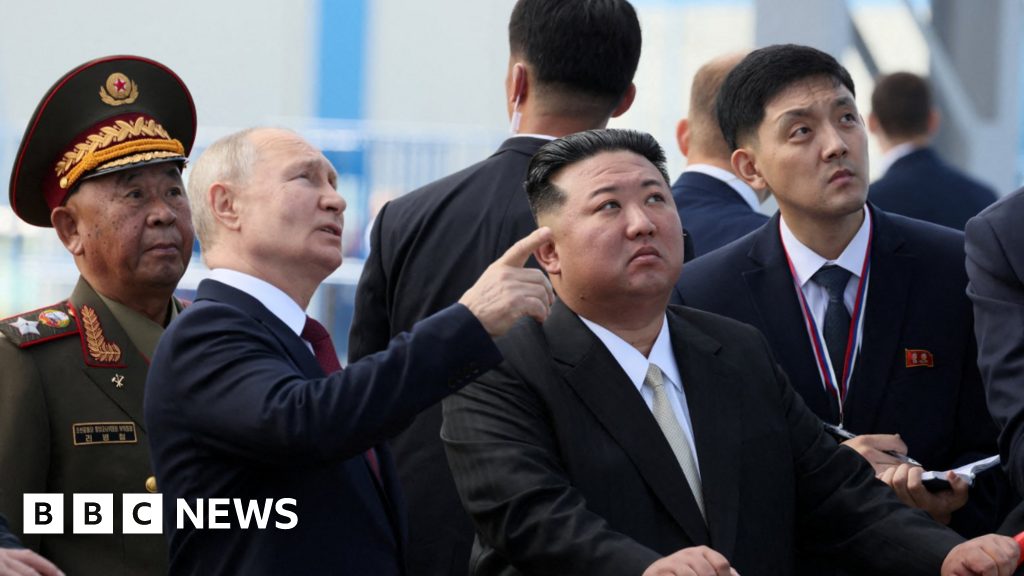
Russian President Vladimir Putin made a historic visit to North Korea on June 18, 2024, marking his first trip to the authoritarian state in 24 years. The visit comes amidst growing tensions between Russia and the West over Moscow's military actions in Ukraine and its strengthening ties with Pyongyang.
Putin was met at Pyongyang airport by North Korean leader Kim Jong-un, who expressed unequivocal support for Russia's invasion of Ukraine. Putin described Kim as his 'comrades-in-arms.' The two leaders held a summit and signed agreements to deepen their relationship.
North Korea has been defying UN Security Council sanctions targeting its nuclear ambitions, and Putin praised Pyongyang for this defiance. Russia and North Korea plan to develop alternative mechanisms of trade not controlled by the West and resist illegitimate unilateral restrictions.
Putin's military needs have driven Russia to strengthen ties with North Korea, which is well stocked in munitions and has opened its stores to Moscow. The two countries met at a Russian cosmodrome nine months ago and toasted their 'sacred struggle' against the West. Kim invited Putin for a reciprocal visit, which Putin has now accepted.
The deepening relationship between the two authoritarian leaders poses a particular challenge for Washington, which once relied on Moscow's cooperation in its attempts to curb North Korea's nuclear and missile program. Now, it faces a Kremlin intent on playing spoiler to American geopolitical interests around the world.
Russian state media released footage showing large Russian flags and portraits of a smiling Putin lining the streets of Pyongyang as North Korea prepared to welcome the Russian leader. The visit marks a significant shift in Russia's foreign policy, further distancing Moscow from Western influence.

